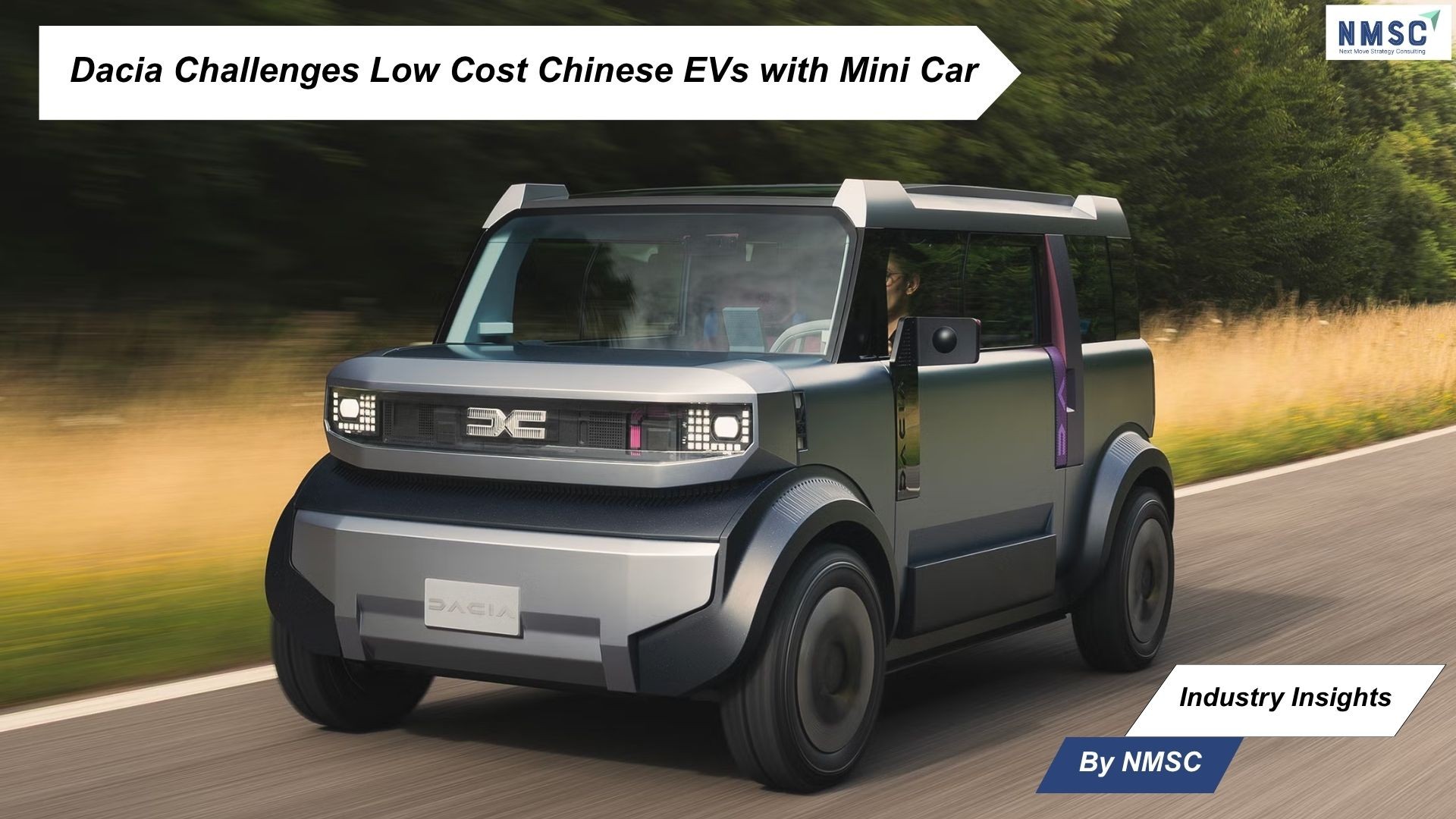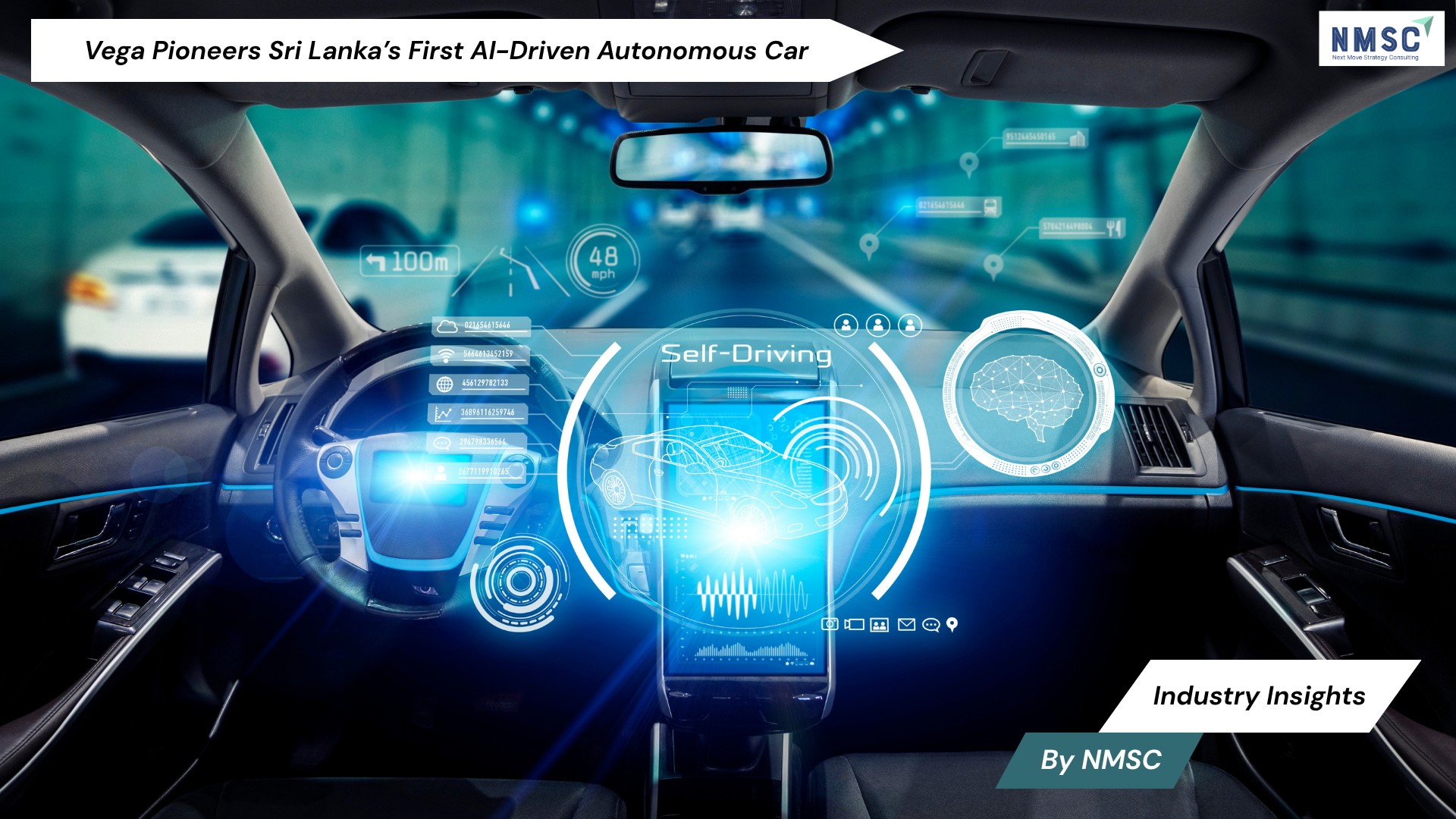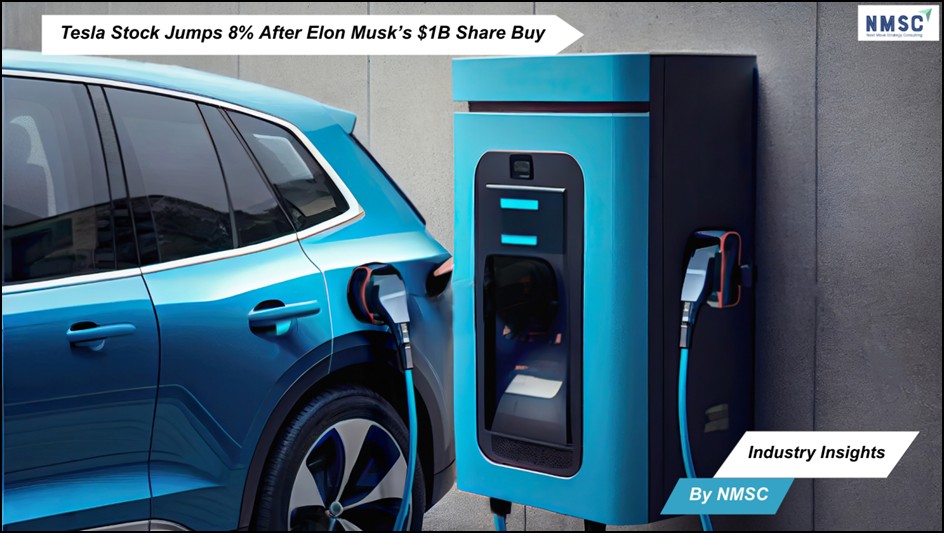Dacia Challenges Low-Cost Chinese EVs with Mini Car
Published: 2025-10-06

Industry Insights from Next Move Strategy Consulting
On Monday, Renault’s budget brand Dacia introduced a prototype of an electric mini-car that could be priced below 15,000 euros ($17,625), positioning it as a potential rival to affordable Chinese electric vehicles.
Dacia Unveils “Hipster Concept” as Vision for Affordable Urban Electric Mobility
The “Hipster Concept”, which may enter production if the European Union approves the creation of a new small-car category, is an ultra-compact vehicle measuring just 3 metres (9.84 ft) in length and weighing under 800 kg (1,763.7 lb). For comparison, the Leapmotor T03 city car—currently the shortest model available in Europe—is 62 cm longer.
Dacia CEO Katrin Adt, who recently joined the company from Mercedes-Benz, described the Hipster as “a reflection of Dacia’s bold vision for accessible, every day, and locally focused mobility.” She added, “Should the opportunity for mass production present itself, we’re fully prepared to move forward.”
Key Features of Dacia’s “Hipster Concept”
-
Compact Performance: The three-door, boxy Hipster can reach a top speed of around 90 km/h (55.92 mph) and offers an estimated range of 150 km on a full charge.
-
Designed for Everyday Use: As per Dacia’s internal data, the average driver travels less than 40 km per day at an average speed of 56 km/h, making the Hipster well-suited for daily urban commuting.
-
Cost-Effective Design: To keep prices low, Dacia has stripped down the model with canvas seats, manual windows, and door straps instead of handles, minimizing electronics and luxury features.
-
Simplified Aesthetic: The Hipster may be offered in a single-color option, similar to the grey-blue finish seen on the prototype, reinforcing its minimalist appeal.
Push for a New EU Small Car Category
Renault and Stellantis are leading efforts to establish a new European Union small car category, inspired by Japan’s Kei cars, which would require fewer mandatory features than larger vehicles—especially in terms of safety regulations.
Supporters of the idea argue that urban and suburban cars don’t need all the advanced safety and comfort features of larger models to remain secure, making this approach the most effective way to reduce both weight and cost.
Dacia points out that the average new car price in Europe increased by 63% between 2001 and 2020, highlighting the urgent need for more affordable options. However, discussions on the new category are still ongoing and would likely include certain conditions.
“The regulations will almost certainly require the vehicle to be manufactured in Europe,” said David Durand, Design Director at Dacia, adding that “we also need to develop an appropriate industrial model to support it.”
Impact of Dacia’s Hipster on the Electric Vehicle Market: Next Move Strategy Consulting’s View
Positive Disruption in Urban EV Mobility
The introduction of Dacia’s Hipster Concept is poised to significantly influence the European electric vehicle market, particularly in the budget and urban mobility segments. By offering an ultra-compact, low-cost electric vehicle, Dacia addresses the growing demand for affordable, practical, and city-friendly EVs. This move could reshape consumer expectations and push other manufacturers to rethink pricing and design for small urban electric cars.
Key Positive Impacts
-
Increased Affordability: The Hipster could bring electric vehicle ownership within reach for a broader segment of European consumers, with a projected price below €15,000.
-
Urban Mobility Optimization: Designed for short daily commutes, the vehicle’s compact size and 150 km range make it ideal for congested city environments.
-
Market Competition: Provides a direct European alternative to low-cost Chinese EVs, potentially encouraging innovation and price adjustments in the European EV market.
-
Sustainability Push: By promoting smaller, lighter vehicles with reduced energy consumption, the Hipster could help lower emissions per urban trip, aligning with EU climate goals.
-
Industrial Stimulus: If EU regulations require local production, the Hipster could boost European EV manufacturing, create jobs and reinforce local supply chains.
Conclusion
Overall, Dacia’s Hipster Concept is likely to have a positive impact on the electric vehicle market in Europe by expanding access, stimulating competition, and promoting sustainable urban mobility, while also encouraging regulatory frameworks that support compact, low-cost EVs.
Source: Reuters
Prepared by: Next Move Strategy Consulting
About the Author
 Karabi Sonowal is an experienced SEO Executive and Content Writer in digital marketing. She excels in SEO, content creation, and data-driven strategies that boost online visibility and engagement. Known for simplifying complex concepts, Karabi creates impactful content aligned with industry trends.
Karabi Sonowal is an experienced SEO Executive and Content Writer in digital marketing. She excels in SEO, content creation, and data-driven strategies that boost online visibility and engagement. Known for simplifying complex concepts, Karabi creates impactful content aligned with industry trends.
About the Reviewer
 Sanyukta Deb is a skilled Content Writer and Digital Marketing Team Leader, specializing in online visibility strategies and data-driven campaigns. She excels at creating audience-focused content that boosts brand presence and engagement, while also pursuing creative projects and design interests.
Sanyukta Deb is a skilled Content Writer and Digital Marketing Team Leader, specializing in online visibility strategies and data-driven campaigns. She excels at creating audience-focused content that boosts brand presence and engagement, while also pursuing creative projects and design interests.
















Add Comment